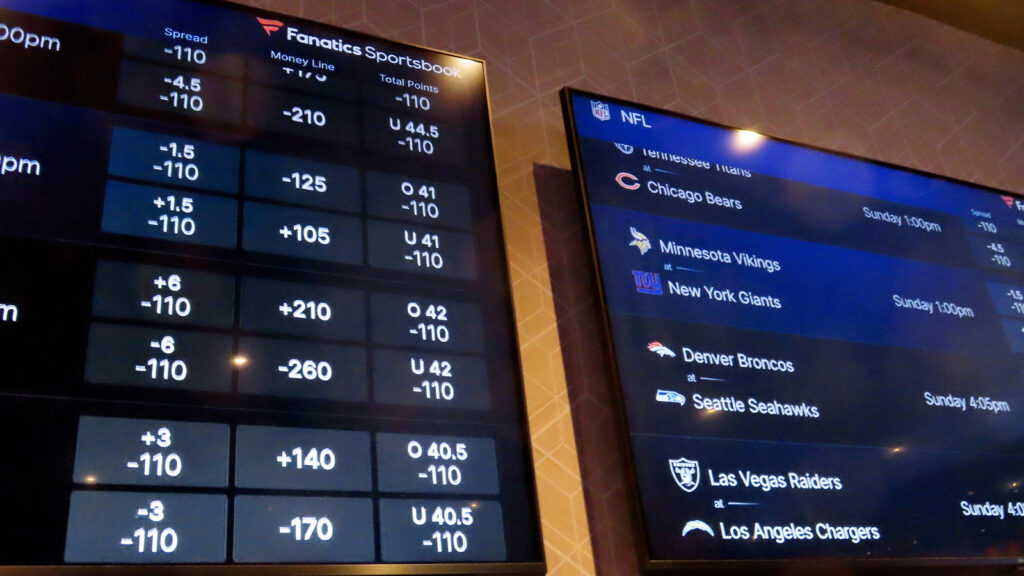New Jersey Responsible Gaming Rules Require Operators To Monitor 'At-Risk' Players

A set of New Jersey Responsible Gaming Rules (57 N.J.R. 2230(a)) published in the state register this week create new standards for the state’s legal sports betting and online gaming operators to follow.
If approved following a mandatory 60-day review period starting Monday, the New Jersey Responsible Gaming Rules codify policies that have been in place – depending on the operator – and may push operators to become more proactive when it comes to stopping problem gambling,. Now operators decide which tools to use that focus on responsible gambling.
The New Jersey Responsible Gaming Rules require each online operator to name at least one “responsible gaming lead.” This person would identify “at-risk” players. Those players receive "responsible gaming information. And would be shielded from certain gaming marketing campaigns and promotions.”
New Jersey first launched legal sports betting in August of 2018, following the repeal of PASPA. Currently, 13 sportsbooks operate online in the Garden State. New Jersey law prohibits wagering on college games played within the state, and on games featuring colleges from New Jersey.
The state handled $628.8 million in sports betting gross revenue during July 2025.
12 ‘Automatic Triggers For Due Diligence Review’

There are 12 behaviors operators will use to determine an “at-risk" customer.
Operators would then conduct a “due diligence” review to determine whether the patron is at risk of problem gaming behavior.
Here are the 12 player actions considered to be potential triggers:
1. Deposits exceed $ 10,000 over a 24-hour period;
2. Deposits exceed $ 100,000 over a 90-day period;
3. Accesses the self-exclusion request page, but does not complete the self-exclusion process three or more times in a 30-day period;
4. Requests a second cool-off period within 45 days of the conclusion of the first cool-off period;
5. Makes three consecutive increases to any responsible gaming limits offered by the operator without any decreases within a seven-day period;
6. Cancels withdrawal requests within the cancellation requirements set forth at (f) below, prior to the processing of the withdrawal three times in a 10-day period;
7. The total turnover of an account exceeds $ 1,000,000 in a 90-day period;
8. Time spent logged into the account increases by 50 percent or more, during the current week, compared to the immediately preceding two-week period;
9. Two or more gambling/gaming sessions ending in the same week with a balance of less than $ 1.00 remaining in the account;
10. Two or more sessions in the same week concluded with an increase in the total number of wagers from the previous session;
11. Any additional triggers identified by the operator to be potential indicators of problem gaming behavior; or
12. Any additional triggers identified by the Division through a Director's Order and notice to the operators.
Rules Needed To ‘Address This Ongoing Issue’
The New Jersey Department of Gaming Enforcement said “ proposed new rule is meant to ensure responsible gaming and addresses the serious issue of problem gaming. Since online gaming began in 2013, and especially with the advent of online sports wagering in 2018, certain patrons have experienced issues with problem gambling” and adds “additional steps are needed to address this ongoing issue.”
Once the operator determines a customer “at-risk,” operators must follow the following procedures:
- The operator shall contact the patron and provide information to the patron regarding the availability of the various responsible gaming features offered by the operator
- The operator shall require the patron to view a video tutorial regarding responsible gaming and problem gaming to continue gaming activity.
- The responsible gaming lead shall contact the patron directly to discuss possible problem gaming behavior and to highlight all responsible gaming options offered by the operator.